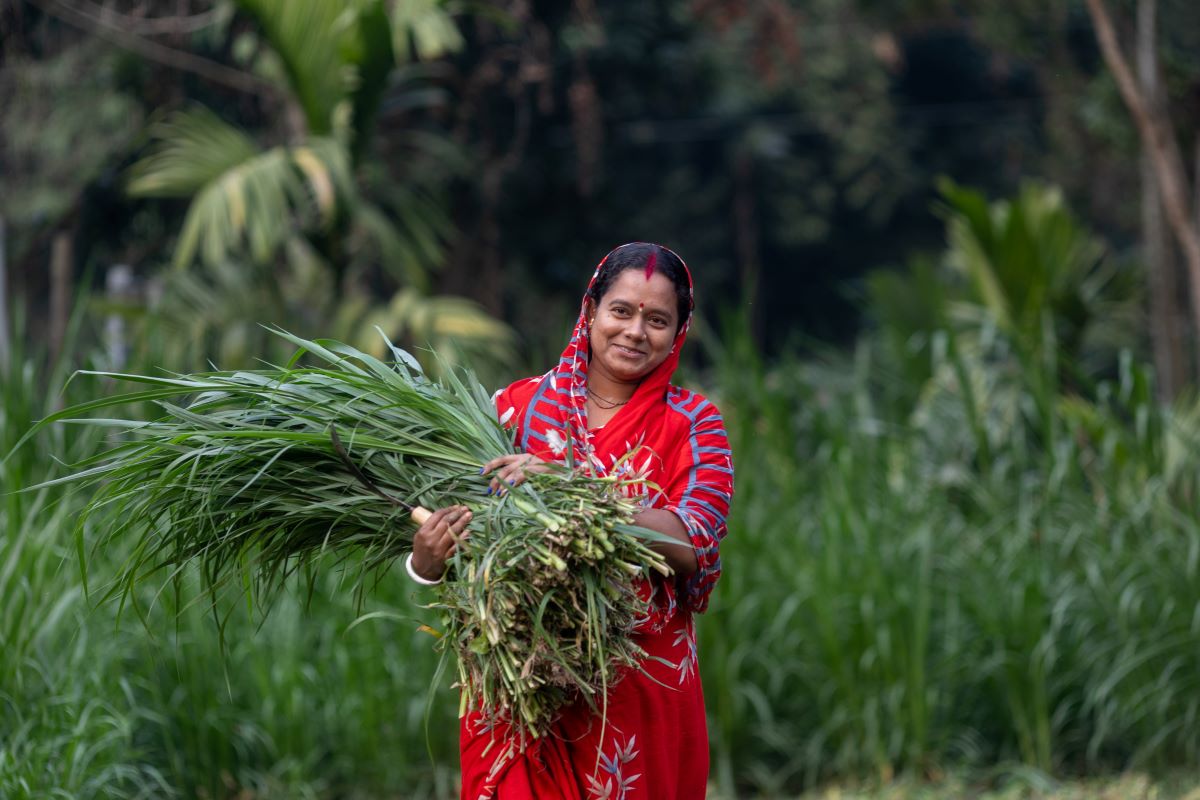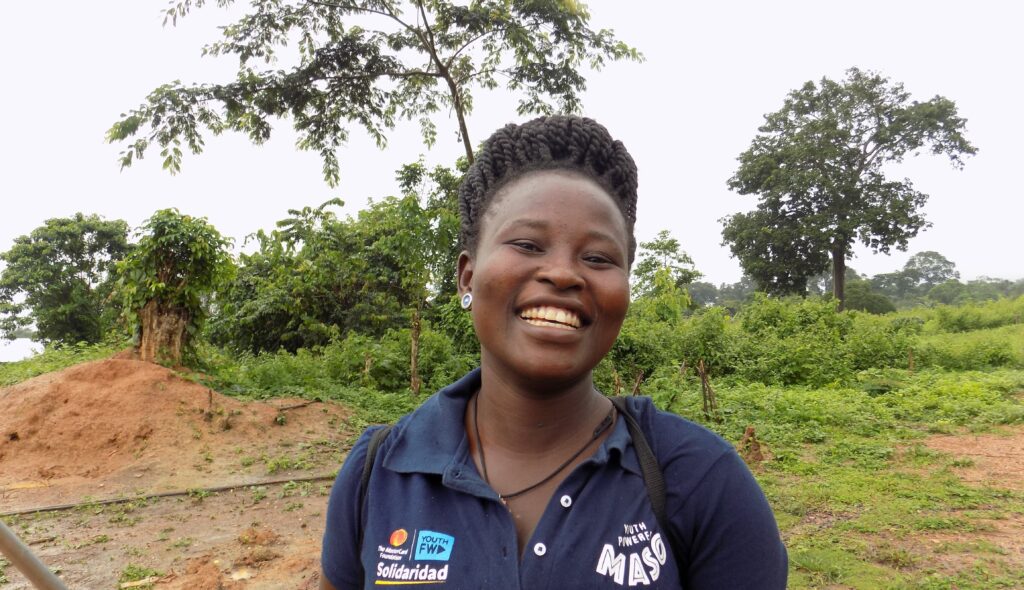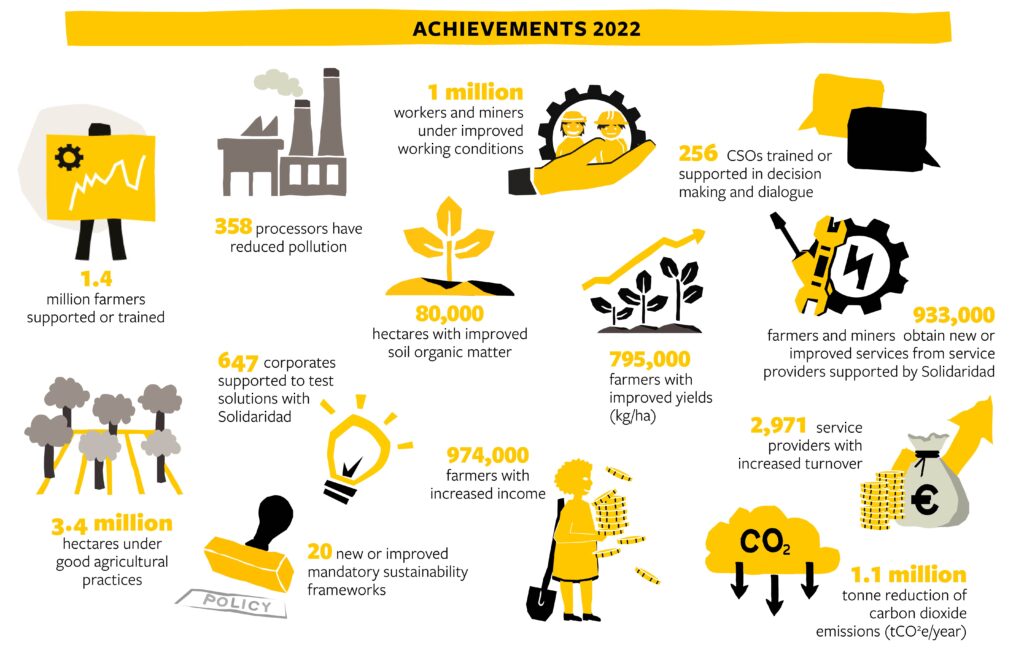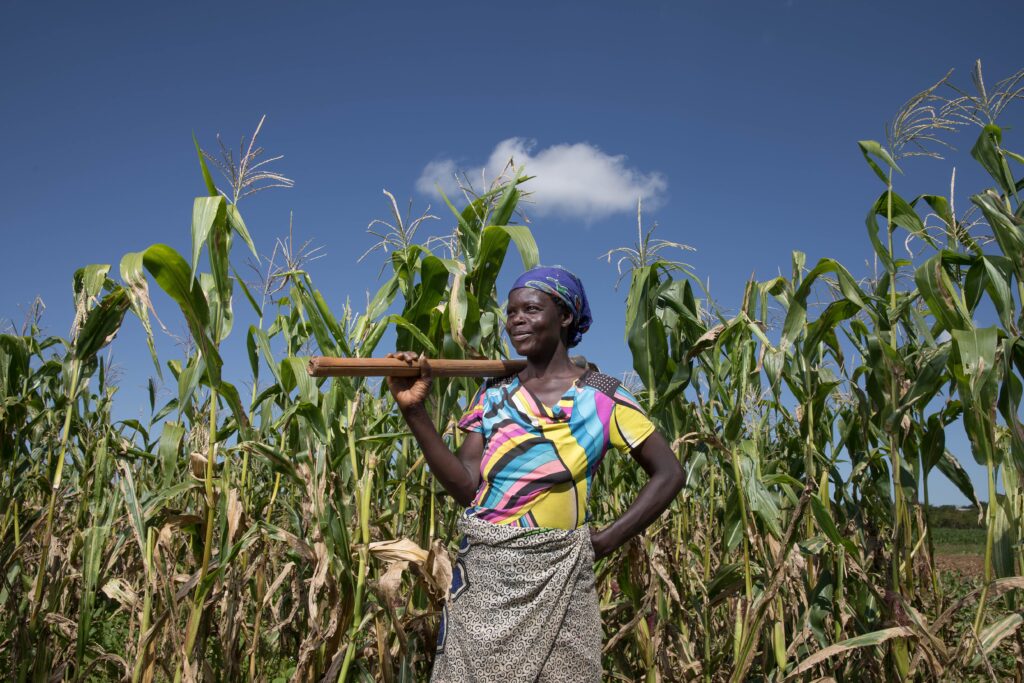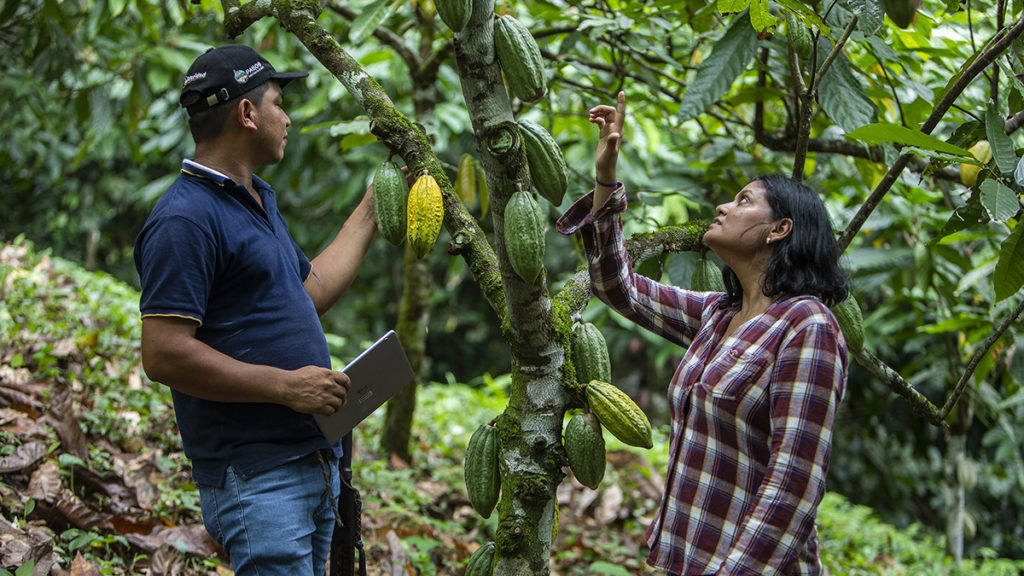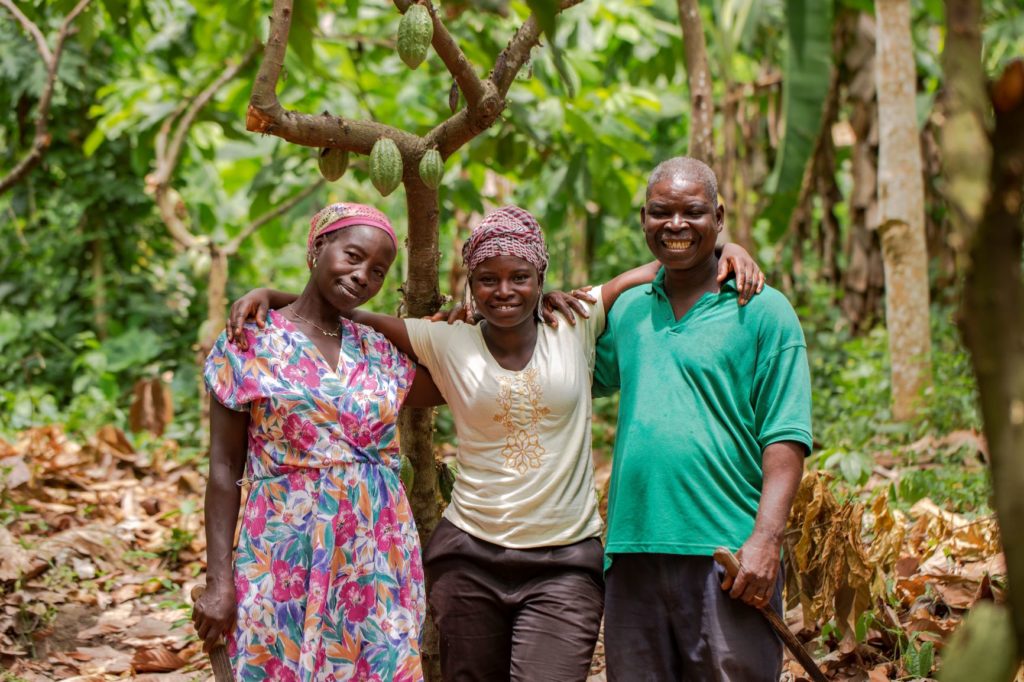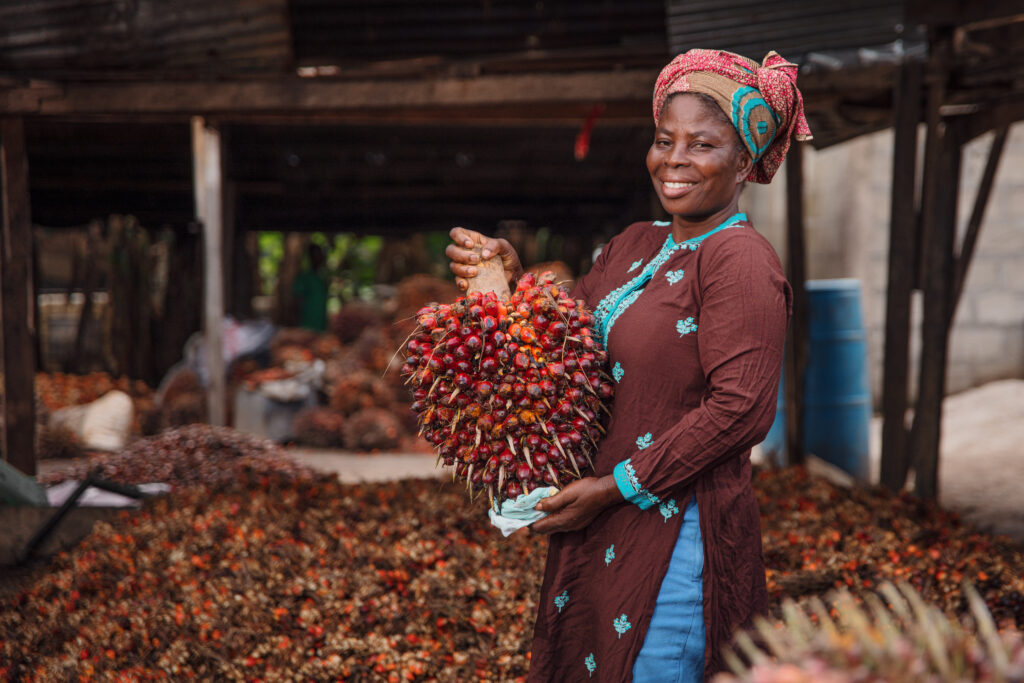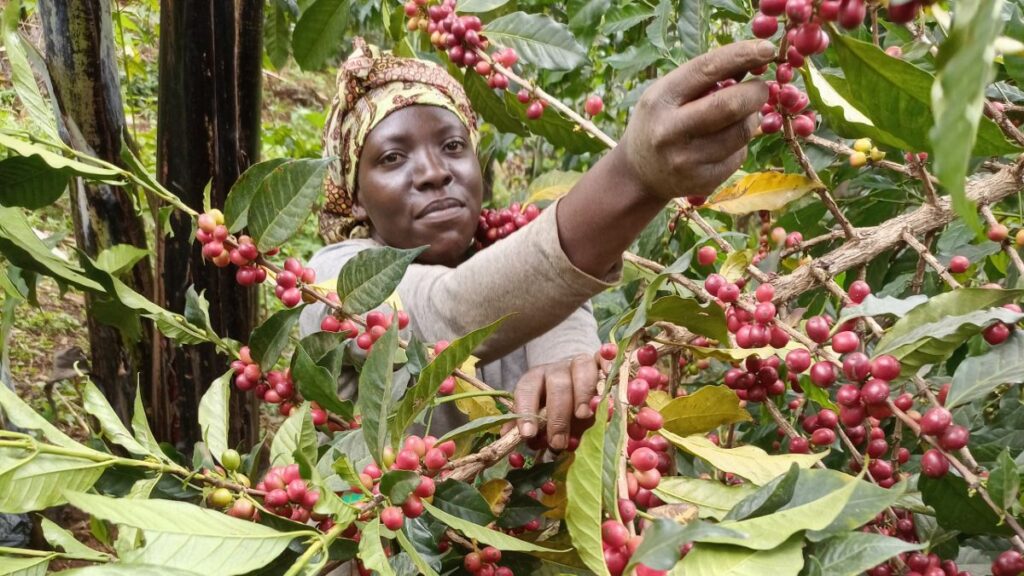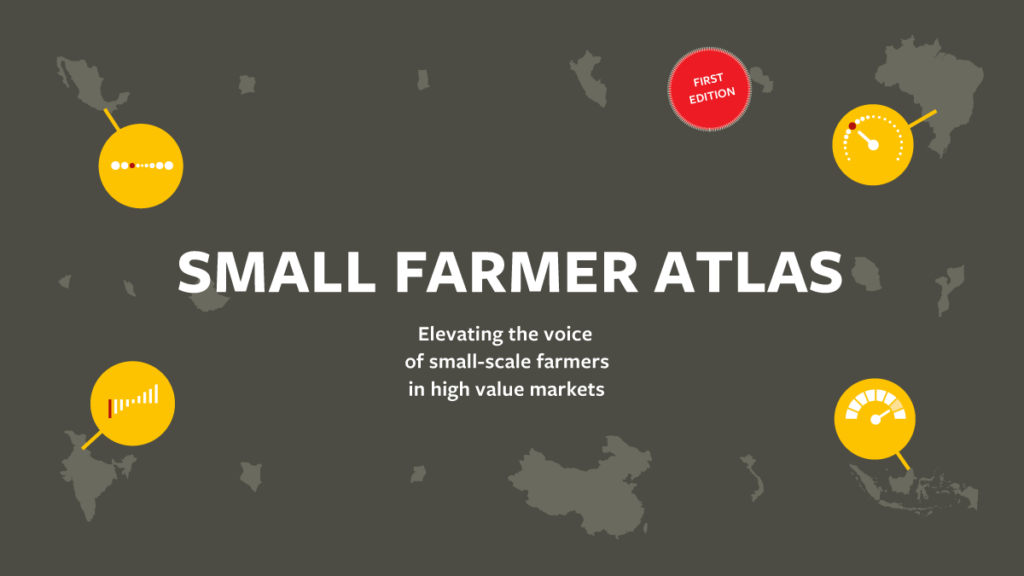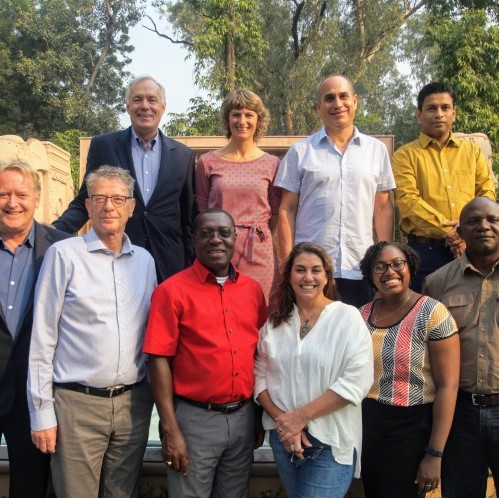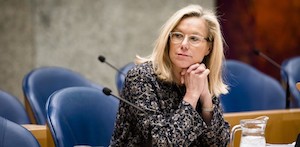In 2023, we undertook a Mid-Term Review of RECLAIM Sustainability!, in a joint collaboration between the programme’s consortium partners Solidaridad, TrustAfrica, Fairfood and Business Watch Indonesia; carried out by an external party. We reflected jointly on our shared progress and collaboration, our lessons learnt so far, and the next steps for ensuring we deliver on our programme priorities.
In this programme, we work towards our main goals through three pathways:
- Accelerate disruptive innovations: Optimize the bargaining position of farmers and workers in the supply chain through supply chain innovations, e.g. digital tools and new ownership models.
- Advocate through inclusive dialogue: Influence the policy agenda and develop evidence-based solutions to address socio-economic and environmental shortcomings in trade and value chains.
- Amplify the voice of citizenry: Mobilize, activate and engage citizens and civil society organizations to change norms and influence the policy agenda.
Within our various projects across the world, consortium partners continue to build upon the work since the start of the programme in 2021. Read on for some highlights of our work in 2023.
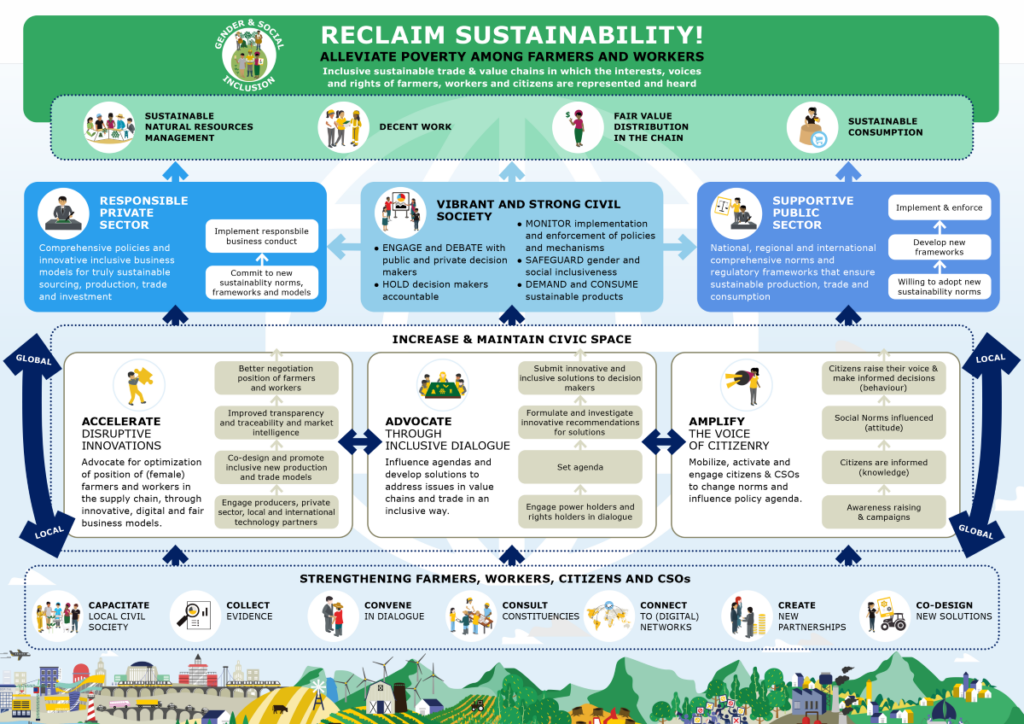
Accelerate disruptive innovations
In this pathway, we strive to optimize the bargaining position of farmers and workers in the supply chain through supply chain innovations, e.g. digital tools and new ownership models.
Supply chain alignment among partners was key to Fairfood’s work under the RECLAIM Sustainability! programme in 2023. With this, we aim to ensure sustainable impact along the supply chain, which is felt by all partners. An example comes from Uganda, from a project that involves all stakeholders; from the farmers and collectors, to the coffee cooperatives, exporters and the Dutch coffee brand that is ultimately selling the coffee.
In partnership with the Ugandan Ankole Coffee Producers Cooperative Union (ACPCU) and social enterprise Ndugu, Fairfood and Solidaridad use traceability to verify payments and sustainability promises made by brands. Using Fairfood’s Trace platform to showcase the coffee’s journey and make sustainability claims verifiable, the data sharing efforts go beyond collectors and implementers, and way beyond known standards. The visibility of supply chain practices reduces the gap between Ugandan farmers and European buyers and consumers, addressing ethical concerns and bolstering support for human rights, gender equality, and community development.
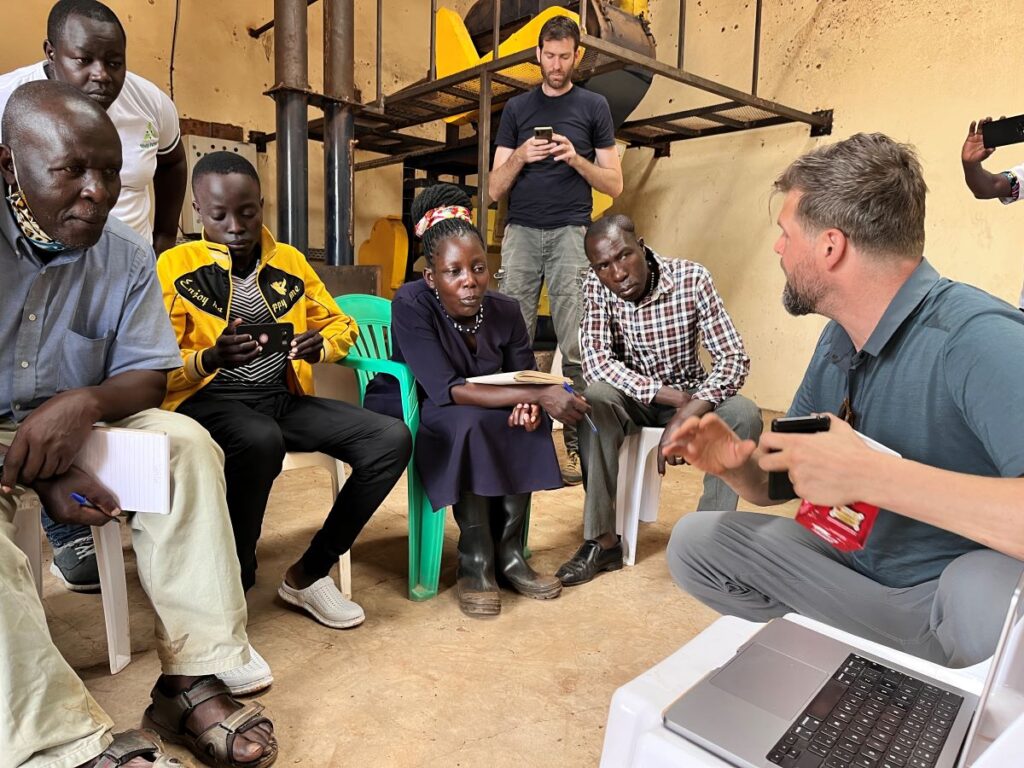
The efforts appealed to the Dutch brand Fairtrade Original. As they commit to closing the living income gap among the cooperatives they work with, transparency on pricing allows both ACPCU and Fairtrade Original to communicate this effort in the Ugandan value chain. On top of existing premiums, for example for quality, a pricing strategy was plugged into ACPCU’s data sharing process in the form of a Living Income Reference Price paid to farmers. Traceability is thus used to verify payments and certifications that support Fairtrade Original’s ambitions.
Traceability in the coffee value chain was also an important part of the work by Solidaridad Latin America in Honduras, enhancing transparency from origin to destination. This improves the possibility of accessing markets given the regulations of the European Union on deforestation-free imports. In 2023, four fully traced containers were exported from 800 producers, using the Trace tool by Fairfood, which utilizes blockchain technology for tracing.
Our work also involved implementing strategies to position women and young coffee producers in Honduras competitively in the international market, adding value through traceability systems, measurement of non-deforestation, and product marketing. In 2024 we aim to connect these innovative products and business plans with the market to start or expand their commercialization.
Advocate through inclusive dialogue
In this pathway, we work on influencing the policy agenda and develop evidence-based solutions to address socio-economic and environmental shortcomings in trade and value chains.
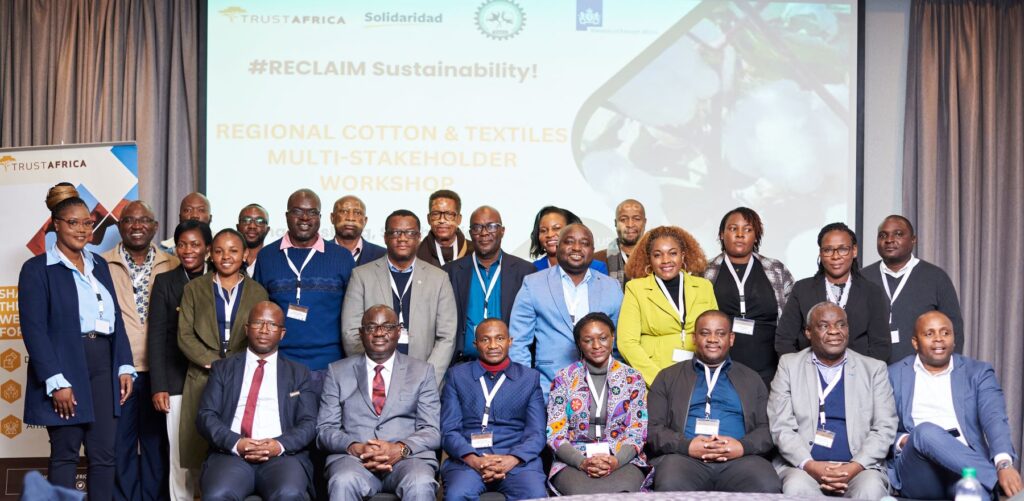
In 2023, TrustAfrica made significant strides in advancing better working conditions, fair pricing, and inclusive policies through advocacy efforts across West Africa, Southern Africa and East Africa regions. In Sierra Leone, collaborative campaigns with SEND Sierra Leone and Women in the Media raised awareness about crucial legislative acts. The publication of the documentary “Poisoned for Gold” highlighted the adverse effects of irresponsible mining practices on community livelihoods. Furthermore, initiatives in Cote d’Ivoire aimed at empowering farmers’ cooperatives and women to advocate for improved policies and working conditions, resulting in two recommendations submitted to the Institute of Surveyors and Agence Foncière Rurale (AFOR).
TrustAfrica also collaborated with Cotton and Tea Associations in Mozambique, Malawi, Zambia, Uganda and Kenya to promote fair pricing practices and protect farmers’ interests. A successful revitalization of the Eastern and Southern Africa Cotton Organization (ESACO) regional Multi-Stakeholder Platform was achieved through a workshop in Johannesburg with stakeholders from 5 countries. Its interim leadership has begun international advocacy and networking through participation in the international Cotton Advisory Committee (ICAC). In 2024, TrustAfrica has planned several activities aimed at amplifying voices of farmers, decent work, better pricing, gender inclusion in government policies, land rights and promoting responsible mining practices.
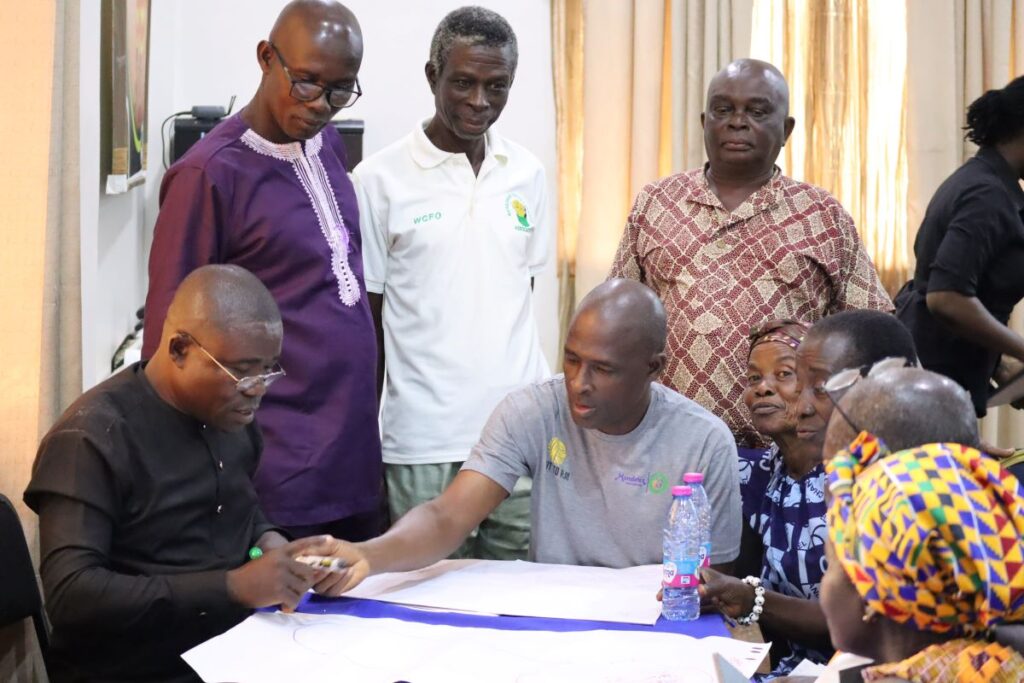
In 2023, Solidaridad West Africa fostered the promotion of sustainable practices and empowering stakeholders in the agricultural sector. In Sierra Leone, the programme supported the Ministry of Agriculture and Food Security to develop a national oil palm policy. Through collaborative efforts, the programme ensured the voices of all stakeholders, regardless of gender, were heard in the policy development processes. The resulting validation report highlights the contribution of the programme to shaping the policy, and an implementation strategy has been developed.
Moreover, recognizing the importance of cocoa farmers’ representation in decision-making at the highest level, we convened a dialogue with stakeholders to empower cocoa cooperatives to form a national association in Ghana. This dialogue brought together 23 cocoa cooperative unions across the cocoa-growing regions to strengthen their institutional capacity, culminating in the drafting of bylaws and the adoption of organizational structures to bolster their representation. The programme also supported advocacy initiatives to safeguard cocoa farmers’ livelihoods in Ghana’s eastern region.
In 2024, we continue to work on land tenure issues in Ghana through the land sector multi-stakeholder platform and provide recommendations for advocacy. In Côte d’Ivoire and Sierra Leone, we will increase the knowledge of cocoa farmers and cooperatives on the European Deforestation Regulation (EUDR).
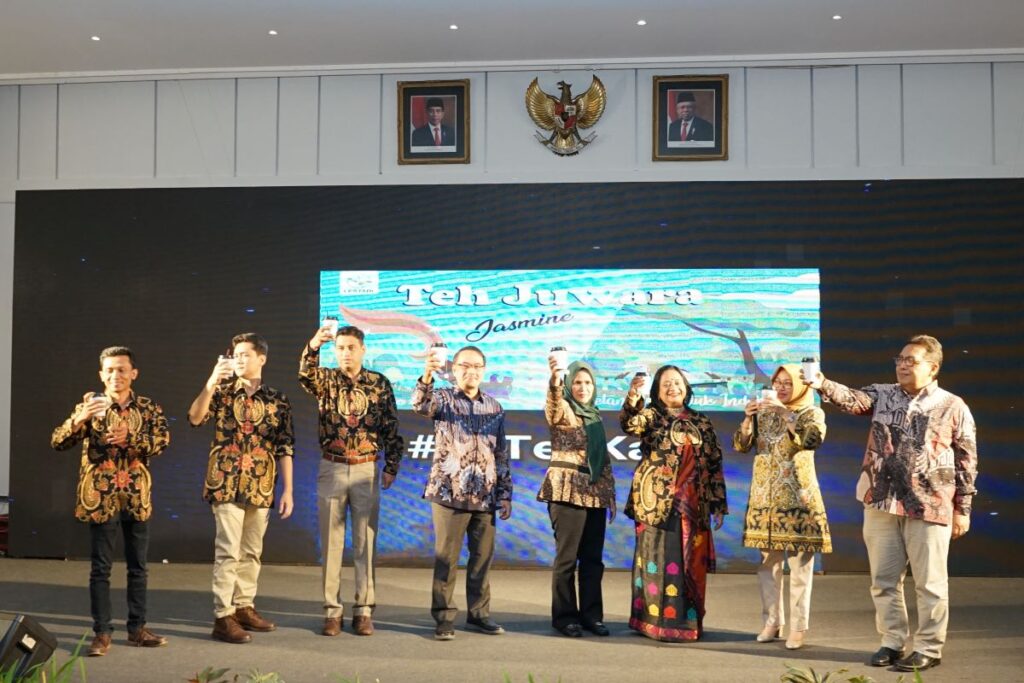
At Solidaridad Asia, we strengthened our multi-stakeholder platforms in tea, cotton and palm oil to influence policy advocacy in favour of smallholders, and consolidated industry buy-in for regenerative practices and traceability in their supply chain.
We focused on supporting smallholder associations in the tea sector in India, China, Indonesia and Bangladesh by creating, strengthening and joining networks of tea producers to enhance access to knowledge and information. The Asia Tea Alliance (ATA) reached a consensus to expand membership to include small tea growers’ associations in member-countries, i.e. the Confederation of Indian Small Tea Growers (CISTA) and the Indonesian Small Tea Growers Association.
Another example within the scope of our work is the Asian Palm Oil Alliance (APOA), a multi-stakeholder platform of palm oil-consuming countries, which strengthened its high-level engagement with government(s), industry associations and businesses in the palm oil sector. In Sri Lanka, APOA, along with the palm oil industry association of Sri Lanka, made a recommendation to the government to lift the temporary ban on palm oil cultivation and initiate an exclusive Palm Oil Mission to support smallholder growers, providing them with necessary resources, technical assistance and market access to ensure their participation in the sustainable palm oil supply chain.
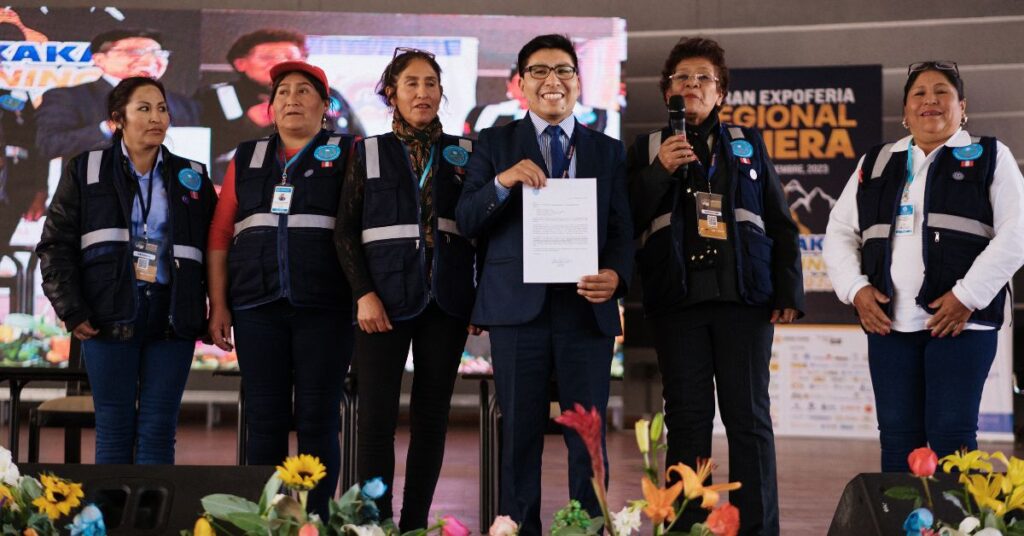
In Peru, Solidaridad Latin America continued to support the members of the National Network of Women in Artisanal and Small-Scale Mining, the first specialized association advocating for the rights of women in ASM. This involved enhancing the Network’s participation in dialogue spaces with national and international audiences. One such opportunity arose during the “Titikaka Mining Expo”, where representatives of the Network presented a petition to integrate a gender perspective into the implementation of the new ASM Policy. Consequently, the Network played a significant role in developing and endorsing the Ministry of Energy and Mines’ first Gender Plan. This two-year initiative aims to raise awareness and manage knowledge with a specific gender focus, while also boosting the involvement of organized women in ASM initiatives that improve their economic and productive conditions, thereby fostering a positive impact on their quality of life.
To expand its influence, the Network will debut a documentary in 2024 featuring the life stories of three of its female leaders. The documentary premiere events in mining communities across Arequipa, Puno, and Madre de Dios will provide the chance to invite more women miners to join the Network.
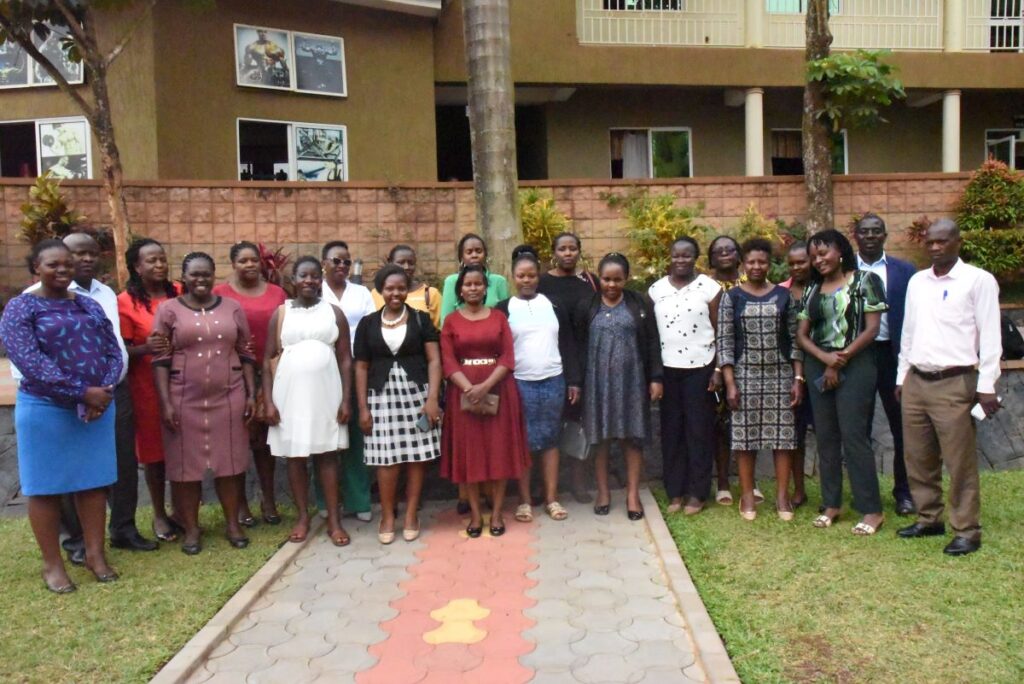
At Solidaridad East and Central Africa, our work emphasized the importance of aligning with the interests of and listening to the voices of smallholder farmers, miners and workers in Kenya, Uganda and Ethiopia, and we leveraged regional and global events to raise awareness about the projects’ progress so far (e.g. at the World Food Forum, World Food Summit, and the African Fine Coffees Conference).
We strengthened CSOs in Kenya through training and facilitating multi-stakeholder platforms, such as bringing them up to speed with the Coffee Bill 2023, which they contributed to and made recommendations on. Moreover, we worked with the Kenyan government ministries to establish a multi-stakeholder platform that examined and formed a cohesive perspective on the Tea (Amendment) Bill 2023, which was then given to the parliamentary committee for consideration.
Within the tea value chain, our work also facilitated the strengthening of women’s civil society organizations, making strides in advocating for inclusive policy formulations and the adoption of innovative business models in Kenya and Uganda. In 2024, the project will continue to strengthen these women’s organizations to amplify their voices in various tea decision-making dialogues, and help them fully adopt these business models where they can market their specialty tea products. The project also hopes to link with other organizations and networks that share its goals and can help promote its various agendas.
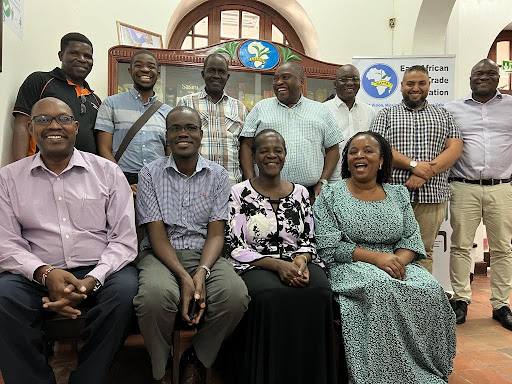
In 2023, Malawi’s tea industry witnessed a transformative period under RECLAIM Sustainability!, fostered by Solidaridad Southern Africa. Collaborating with local tea producers, Malawi aims to modernize its sector, becoming a trailblazer for the Southern African region. This development responds to emerging challenges and the industry’s call for innovation. A delegation from the Tea Association of Malawi (TAML) visited the Mombasa Tea Auction in Kenya, with the goal to gather insights on adapting to industry shifts and rejuvenating Malawi’s tea sector.
Malawi’s tea industry, crucial to its economy, grapples with falling prices, aging infrastructure, and equipment constraints. A diverse delegation, including smallholder producers, brokers, and programme representatives, convened to address these challenges. Central to their agenda was exploring the adoption of e-auction systems, inspired by Kenya’s successful model. Witnessing the efficiency of automated auctions in Kenya, the delegation aims to replicate similar advancements at the Limbe Tea Auction in Malawi.
The benefits of automation in Malawi’s tea industry are substantial, offering improved efficiency, broader market access, and increased bargaining power for producers. Proposed strategies include formalized collaborations with industry partners and exploring hybrid auction models for remote participation. Looking forward, Malawi’s automation journey stands as a beacon of hope for African tea-producing nations.
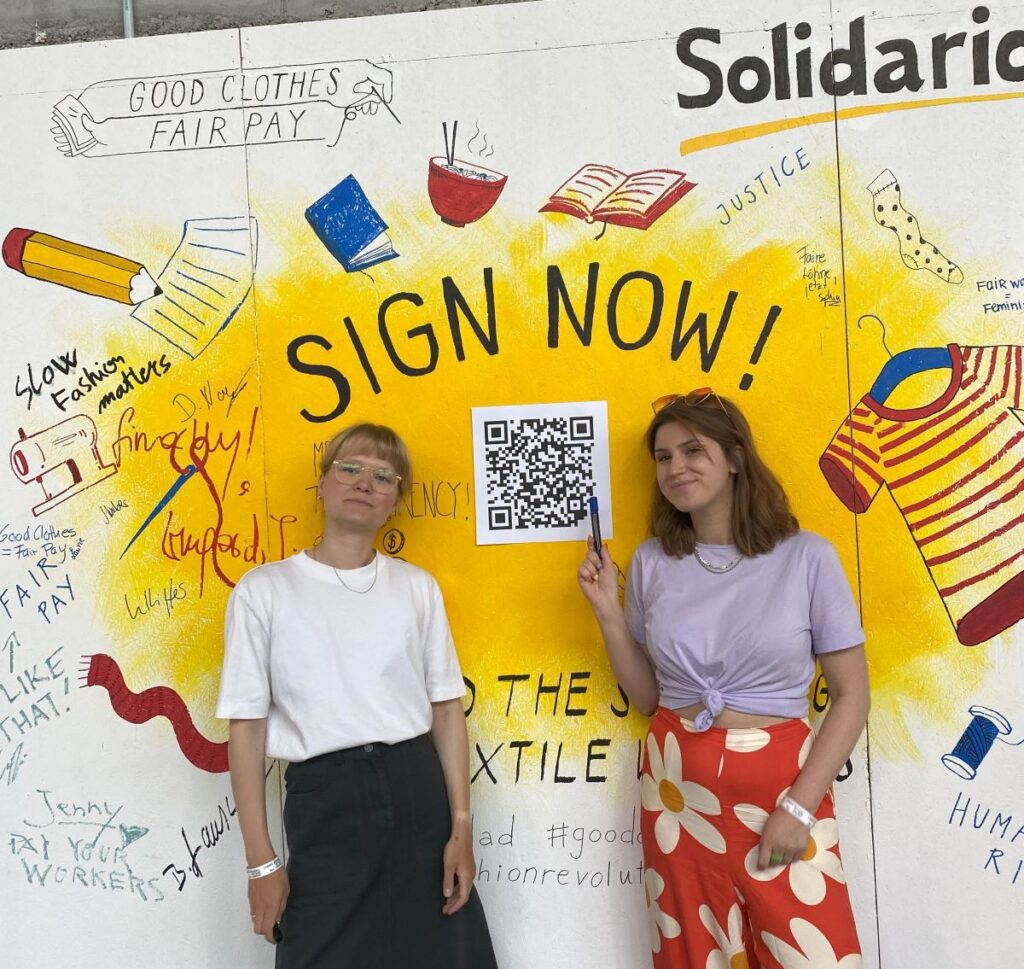
An important aspect of our ongoing advocacy work at Solidaridad Europe, both in 2023 and 2024, is ensuring that EU legislation is implemented in a smallholder-inclusive way, such as through influencing the processes around the Corporate Sustainability Due Diligence Directive (CSDDD) and the EU Deforestation Regulation (EUDR), both of which have the potential to make an enormous impact for the producers in global commodity value chains outside of Europe. We also work closely with fashion brands to transform their purchasing practices, while helping manufacturers to improve their working conditions and reduce environmental impact. Through our involvement in various multi-stakeholder initiatives in the textiles industry, we know what it takes for brands to build equal partnerships with their suppliers.
Amplify the voice of citizenry
Our work in this area involves mobilizing, activating and engaging citizens and civil society organizations to change norms and influence the policy agenda.
To support our policy influencing work, Solidaridad Europe activates the voice of citizenry, as citizens have an important role in pressuring governments and companies to change or improve their policies and practices. A good example in 2023 was our first citizen campaign in Germany, a continuation of the Good Clothes Fair Pay campaign we launched in 2022 in the Netherlands (part of the European Citizen Initiative). This Europe-wide campaign, which many other civil society organizations contributed to as well, supported the lobby towards EU living wage legislation in the garment industry.
Although the campaign didn’t reach the aimed-for one million signatures (with a total of 240,000 signatures collected by all campaign organizations collectively by July 2023), it created tremendous awareness in Europe, also amongst numerous influential policy makers that have been involved with the petition. Also in 2024, this show of support from European citizens will continue to foster our lobby work towards living wage legislation, as they show that citizens really care about a living wage for those who make their clothes.
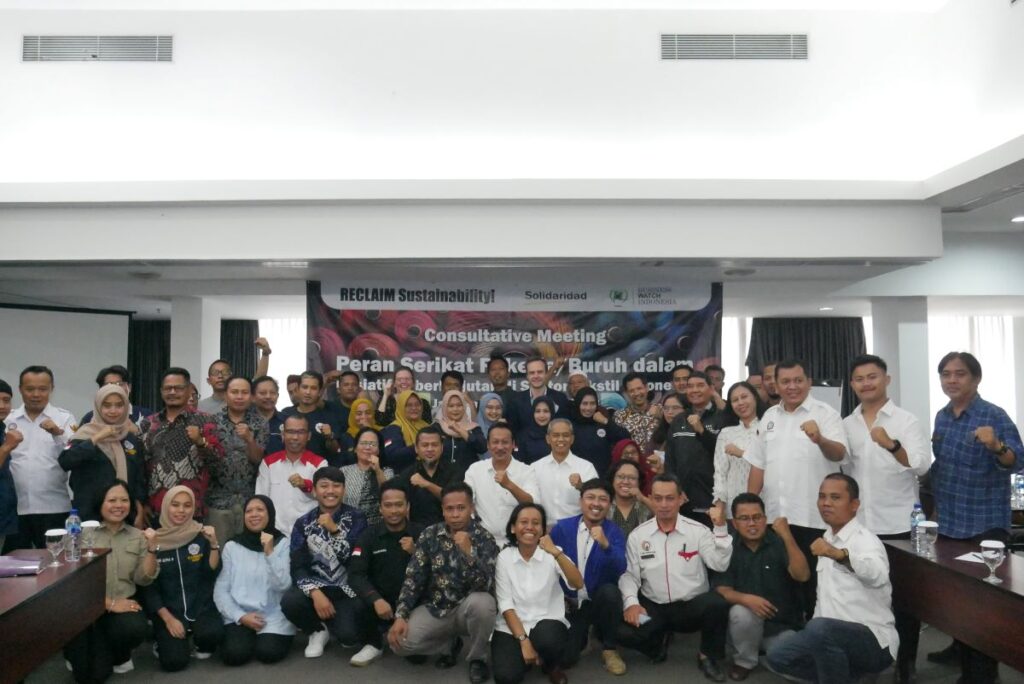
Meanwhile, Business Watch Indonesia continued campaigns for smallholder tea products, in collaboration with partners. The campaigns have received wider support, among others from the Indonesia Tea Board, the Ministry of Cooperative and SMEs, and the Ministry of Tourism and Creative Economy. While in the advocacy process, members of Paguyuban Tani Lestari delivered their aspirations through an open letter to the national government. The letter urged the government to create an enabling environment for supporting tea smallholders in Indonesia. Enhancing Indonesia tea stakeholders’ network, Business Watch Indonesia facilitated tea stakeholders, mainly tea smallholder groups, to participate in the Asia Tea Alliance event which was conducted in Indonesia with the support from Solidaridad Asia.
Moreover, in order to strengthen the role of workers in sustainability trends and complaint mechanism schemes in the textiles sector in Indonesia, Business Watch Indonesia conducted a consultative meeting with the presence of Daan van der Meer from the Netherlands Ministry of Foreign Affairs. 11 confederation/federation of labour unions participated in the meetings with the Dutch government representative, and the event was followed up with the signing of an MoU to tie the commitment of 3 labour confederations supporting the ideas to enhance the role of labour unions.
About RECLAIM Sustainability!
RECLAIM Sustainability! is a five-year programme (2021-2025) implemented by Solidaridad, TrustAfrica, Business Watch Indonesia and Fairfood in strategic partnership with the Netherlands Ministry of Foreign Affairs. This global programme is active across 17 countries in the global value chains of cocoa, coffee, tea, palm oil, cotton & textiles, and gold; and with a special focus on local food systems in Africa.
Visit our programme page or have a look at our mid-term review report to find out more about our solutions, impact and way of working.
Interested to work together with us? Get in touch, we’d love to hear from you.

